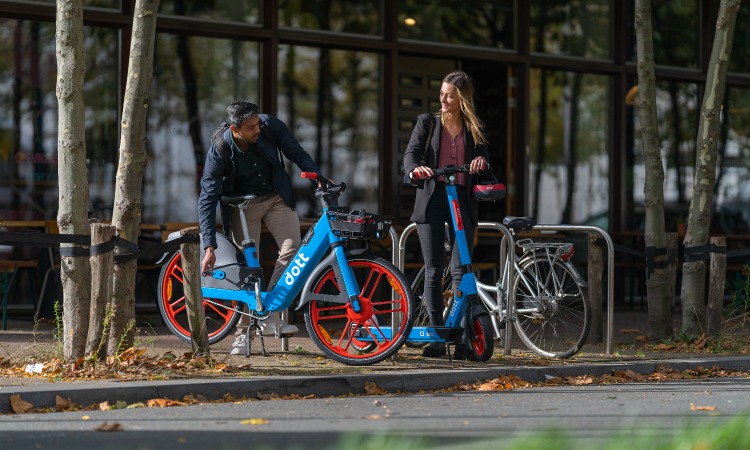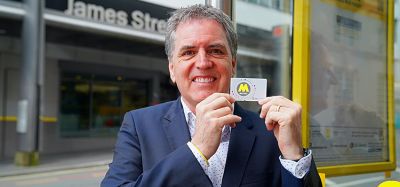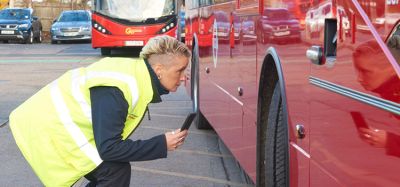Dott study unveils £1.1 billion potential boost to UK economy with e-scooter and e-bike services
- Like
- Digg
- Del
- Tumblr
- VKontakte
- Buffer
- Love This
- Odnoklassniki
- Meneame
- Blogger
- Amazon
- Yahoo Mail
- Gmail
- AOL
- Newsvine
- HackerNews
- Evernote
- MySpace
- Mail.ru
- Viadeo
- Line
- Comments
- Yummly
- SMS
- Viber
- Telegram
- Subscribe
- Skype
- Facebook Messenger
- Kakao
- LiveJournal
- Yammer
- Edgar
- Fintel
- Mix
- Instapaper
- Copy Link
Posted: 3 March 2023 | Intelligent Transport | 1 comment
In addition to potentially boosting the UK economy by £1.1 billion, Dott’s study shows that increased use of e-scooter and e-bike services could also result in significant health and congestion saving benefits.


Credit: Dott
Dott has announced that it has released a new report, revealing that e-scooter and e-bike services have the potential to provide a £1.1 billion boost to the UK economy.
The study is based on both the direct and indirect financial contributions of Dott’s existing services in London. Researchers at Oxford University’s Oxford Strategy Group demonstrated that the economic gains which could be made if more people choose to switch to environmentally friendly vehicles for travel across the city.
With existing usage, Dott’s shared e-bike and e-scooter service has been shown to contribute over £3 million to the economy. In addition, if just one in five of London’s two billion car trips switch to an environmentally friendly alternative, over £1 billion of benefits could be unlocked.
Neuron’s latest research highlights economic benefits of e-scooters in the UK
Researchers had calculated the direct economic contributions of Dott’s service in London, including wages, operations and spending on equipment. This had been combined with indirect economic impacts, consisting of:
- Congestion savings of £672 million, by all road users from reduced congestion on the streets if one in five London car journeys switched to e-bikes or e-scooters
- Time savings equivalent to £22 million, if 400 million London car journeys switched to a Dott e-bike or e-scooter – based on 4.7 million hours of potential time savings from switching to more efficient travel across the city
- Health savings of £371 million based on reduced pollution levels from car trips replaced by Dott if one in five car journeys are swapped.
Henri Moissinac, Co-Founder and CEO of Dott, said: “People are increasingly discovering that shared e-scooters and e-bikes can provide efficient, safe and reliable travel across their cities. This new research shows how choosing sustainable transport can benefit the wider economy as well. To unlock this potential, policy makers should take steps to make it easier for more people to switch to environmentally friendly alternatives.”
Dott has stated that the potential economic impact can be gained by encouraging more people to switch to e-scooter and e-bike services. the micro-mobility operator’s experience in major cities across Europe shows that the most successful shared schemes include a consistent experience across the city, high density of parking spots, limited no-go and slow zones and high quality infrastructure, such as segregated cycle lanes.
If you liked this, you may also be interested in:
▶ Bolt introduces reckless rider score feature to enhance micro-mobility safety
▶ Birmingham’s e-scooter scheme paused as Voi contract comes to an end
Related topics
Air Quality, Micro-mobility, Mobility Services, Passenger Experience, Sustainable Urban Transport
Related modes
Bikes & Scooters
Related countries
United Kingdom
Related organisations
Dott, Oxford University
Related people
Henri Moissinac









Decreased city traffic, time savings on different routes traveled, reduced levels of air pollution with consequent health benefits for all: these are some of the benefits that can only be achieved by switching to the use of e-scooters and e-bikes. We agree with the author as, in our opinion too, it is important that specific incentives be allocated for the use or purchase of these electric means of transportation, which are still too often considered an unnecessary expense.